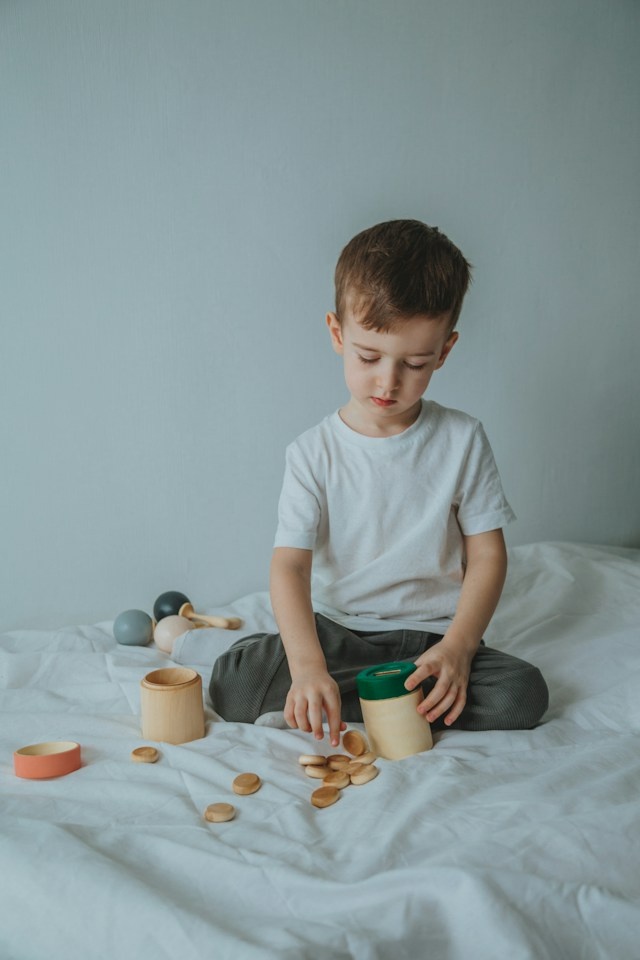Child Therapy
Is Your Child’s Mood Or Behavior Concerning You?
 ● Does your child seem overly anxious, fearful, or distressed?
● Does your child seem overly anxious, fearful, or distressed?
● No matter how much you try to comfort and reassure them that they are safe, does nothing seem to work, or, perhaps, make things worse?
● Are you at the end of your rope and ready to find solutions in counseling that will benefit your child and family?
If your child has become increasingly distressed, you might be deeply concerned about their well-being and feel frustrated by your inability to help them. Rather than acting like a happy and carefree kid, perhaps they may appear worried, upset, and withdrawn. They might frequently complain about physical ailments—such as headaches, stomachaches, or injuries— and use these as excuses to avoid things they’re afraid or anxious about, like going to school or participating in extracurricular and social activities.
You May Feel Out Of Your Depth
You might suspect that your child’s intrusive thoughts, compulsive behavior, and fear-based avoidance could signal they have OCD. Or perhaps they exhibit undesirable behaviors such as tics, hair pulling, skin picking, or reassurance seeking. They might have trouble sleeping and, instead, stay awake worrying about all the things they’re afraid of—which unfortunately affects your sleep, too.
You’ve likely tried to ease your child’s fears or change their behavior, whether by offering reassurance, downplaying their fears, or encouraging them to break a problematic habit by rewarding them with gifts or privileges. If none of your strategies have worked, you might be feeling frustrated and at a loss for what to do to help them.
The good news is that therapy can help address what’s going on with your child. Working closely with a child behavior specialist will give you insight into what’s troubling your child, equipping you with the knowledge of how best to help them.
Anxiety Affects One In Five Children Worldwide
 Mental health disorders affect children more often than we may think. The American Psychological Association reports that anxiety affects 20.5 percent of youth worldwide. [1] What’s more, “1 in 5 of children (6-17 years old) exhibit tics at some time during their childhood,” “the estimated number of children aged 3–17 years ever diagnosed with ADHD, is 6 million (9.8 percent),” and “between 2-4 percent of all children will develop OCD before adulthood.” [2] [3] [4]
Mental health disorders affect children more often than we may think. The American Psychological Association reports that anxiety affects 20.5 percent of youth worldwide. [1] What’s more, “1 in 5 of children (6-17 years old) exhibit tics at some time during their childhood,” “the estimated number of children aged 3–17 years ever diagnosed with ADHD, is 6 million (9.8 percent),” and “between 2-4 percent of all children will develop OCD before adulthood.” [2] [3] [4]
It’s true that as parents, we are only ever as happy as our least happy child. The anxiety and frustration our children experience become our own. Unfortunately, stigmas persist that if a child struggles with mental health, it’s an indictment on us as their parents. We may blame ourselves, wondering if we somehow unwittingly caused their distress.
Kids Are Growing Up In A Stressful World
However, as much as we try to safeguard our kids, the fact remains that our children live in a stressful world. As they get older, it’s impossible to shield them from what’s going on around the planet. Hearing about what’s happening on the macro level—climate change, school shootings, political tensions, wars, and economic uncertainty—could cause fear over the future. What’s more, they may be dealing with stressors closer to home, such as pressure to succeed, both academically and in extracurricular activities, fitting in with their peers, and navigating the pitfalls of social media.
It’s challenging getting our arms around how to support our kids. Not only do we often lack the knowledge and tools to help, but we may be swamped with other obligations, leaving us little bandwidth to dedicate to their recovery.
The benefit of child therapy is that you are no longer alone. Forging a supportive partnership with a therapist who is dedicated to helping you and your child empowers your family with evidence-based treatment solutions.
Therapy Gives You And Your Child The Right Tools To Make Positive Transformation Possible
As a parent, you care about your kids more than anything—it’s heartbreaking to see them suffer. You want to know they’re okay and will one day become a well-adjusted adult. At CBT SoCal, our approach is to understand the issues at play so we can problem-solve. The ultimate goal of therapy is for you and your child to live well and thrive.
In therapy, your child will learn the skills to communicate more effectively, cope with stress, and build self-awareness. We aim to be a resource for your family so you can maximize your ability to problem-solve collaboratively and handle day-to-day stressors together. Cognitive Behavioral Therapy (CBT) for children allows us to do more than just listen and talk. CBT helps us develop an understanding of what is causing your child’s distress so that we can work together to bring about positive change.
What To Expect In Sessions
As a parent, we rely on your participation in treatment to ensure success. Reinforcing at home what we work on in sessions will help your child make progress more quickly and provide consistency. Our objective will be to help identify ways to respond to your child’s distress that are helpful so that you can be part of their growth.
Child therapy may include:
● Providing education to help explain symptoms and behaviors associated with anxiety, OCD, tics, or Body Focused Repetitive Behaviors (BFRBs) like hair pulling;
● Offering parent coaching when appropriate, such as curbing accommodations that could be inadvertently reinforcing unwanted behaviors and habits;
● Helping you and your child identify patterns—as it’s likely some repeating pattern of thoughts, habits, and emotions prolong cycles of distress—and replacing these cycles with better options and solutions;
● Encouragement and coaching for facing fears in social or school situations;
● Teaching mindfulness and grounding skills geared for children.
The Modalities We May Incorporate Into Counseling For Children
We believe that every young individual is unique and deserves individualized care. Our team’s approach is personalized and evidence-based, using multiple tools and theories including Cognitive Behavioral Therapy (CBT), play therapy, and family systems approaches.
CBT offers strategies to help children effectively cope with anxiety, ADHD and OCD. Used in conjunction with CBT, Habit Reversal Training (HRT) can also provide skills for breaking undesired habits, such as tics, hair and eyelash pulling, or skin picking. HRT in particular can help your child become more aware of undesirable BFRBs and determine more constructive behaviors to replace them with.
Additionally, exposure therapy provides a step-by-step roadmap for children to face their sources of anxiety—like attending school or social situations, being alone, or doing something “bad”—so they can stop avoiding the things they fear and expand their world. For younger children, we also offer Parent-Child Interaction Therapy (PCIT), which integrates play and art into experiential sessions and is attended conjointly with parents.
Collaborating with our expertise offers hope. Change doesn’t always happen immediately, but we can provide the right support, guidance, and information for you and your child to maximize the likelihood of success.
But Maybe You’re Not Sure If Therapy Is Right For Your Child…
As a parent, will I be an active participant in my child’s therapy?
There is generally great benefit involving parents in therapy for children. However, we aim to structure counseling based on what we determine will be most helpful for your child. This can vary on several things, such as age, personal preference, home dynamics, and the nature of the presenting concerns. We often alternate between the counselor meeting alone with your child, holding separate parent consultations, and meeting jointly.
How many counseling sessions will it take before my child feels better?
The length of therapy will depend on the nature and severity of your child’s challenges, how motivated they are to engage in treatment and try new things, and what level of active parental involvement you are open to. We have worked with kids and families who can meet their goals within just a few sessions, while for others, it can be a more involved process. We are also flexible to meet at whatever frequency is feasible and necessary to help a child and family in need of counseling in the event that resources or schedules make it difficult to to meet more regularly.
What if my child doesn’t want to come to therapy?
Understandably, your child may find the idea of “going to see a psychologist for counseling ” intimidating. We can consult with you to see how best to present the idea of therapy to your child. Perhaps proposing to see a “family coach” to help everyone improve together may have a better ring to it than a “child therapist”.Our team often uses toys and games to engage kids at first. Rewards for attendance can also be helpful if needed.
 We Can Provide The Solutions Your Family Needs
We Can Provide The Solutions Your Family Needs
You and your child do not have to face these challenges alone. Reach out to us today so we can help your family along the journey of growth and resilience. To find out more about child therapy with CBT SoCal, please call 818-547-2623 or visit our contact page.
[1] https://www.apa.org/monitor/2022/10/child-anxiety-treatment; https://jamanetwork.com/journals/jamapediatrics/fullarticle/2782801
[2] https://tourette.org/spectrum-tourette-syndrome-tic-disorders-consensus-scientific-advisors-tourette-association-america/#:
[3] https://www.cdc.gov/ncbddd/adhd/data.html
[4] OCD-in-Kids-and-Teen-Brochure.pdf (iocdf.org)





